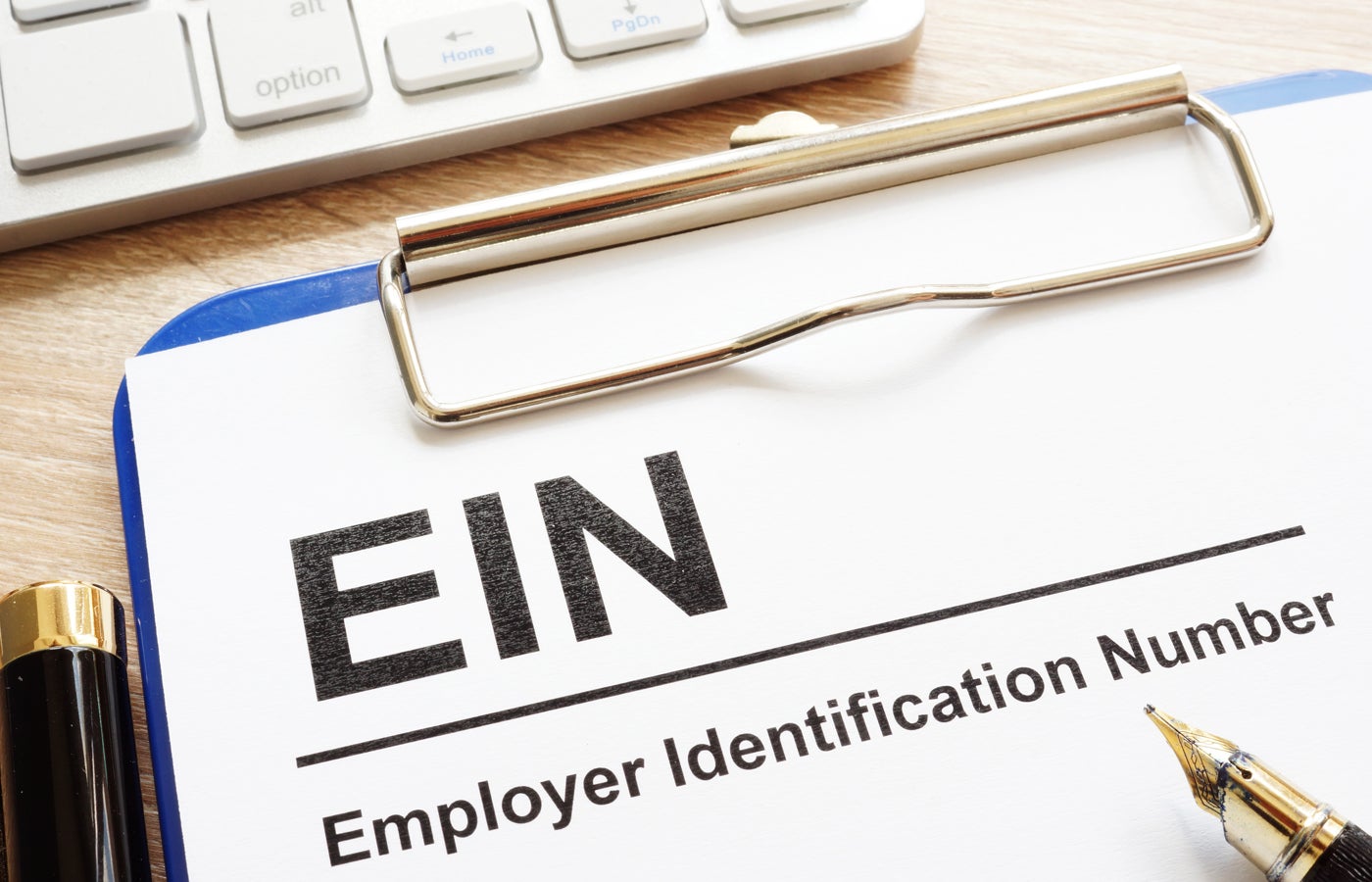An Employer Identification Number (EIN) is necessary for completing basic business activities in the United States and U.S. territories, such as opening a bank account and paying employees.
Deciding whether or not you need to get an EIN is simple, and applying for an EIN is fast and free, though you will need to gather some documentation beforehand. Having an EIN protects your personal finances and also lends your business credibility.
Featured Partners
What is an Employer Identification Number (EIN)?
An Employer Identification Number (EIN) is a unique number assigned by the Internal Revenue Service (IRS) to business entities within the United States and U.S. Territories. You might also see an EIN called a Federal Tax Identification Number as well. The IRS uses the EIN to identify employers and taxpayers who must pay business and payroll taxes.
The EIN is a nine digit number that is formatted like so: XX-XXXXXXX. EINs never expire and are completely unique to each business entity. EINs are never reassigned to another business, even if the original one goes out of business.
Who needs an EIN?
Whether or not you need an EIN is not based on the size of your company. Even if you only have one employee, you still need to file for an EIN. All forms of business can apply for an EIN, including sole proprietorships, limited liability corporations (LLCs) and S corporations.
The IRS offers a simple questionnaire to help you determine if you need to file for an EIN or not. But essentially, if any of these statements apply to you, you need an EIN:
- You have employees.
- Your business is a corporation or partnership.
- You file Employment, Excise, or Alcohol, Tobacco and Firearms tax returns.
- You withhold taxes on non-wage income paid to a non-resident alien.
- You have a Keogh plan.
- You’re involved with these types of organizations:
- Certain trusts that aren’t particular grantor-owned revocable trusts, IRAs or Exempt Organization Business Income Tax Returns.
- Estates.
- Real estate mortgage investment conduits.
- Nonprofits.
- Farmers’ co-ops.
- Plan administrators.
Even if you already have an EIN, you might need to get a new one if your business ownership or structure has changed. The IRS provides additional guidance on their website to help you determine if your circumstances require a new EIN or not.
When do you need an EIN?
In the U.S., you cannot run your business without an EIN, and obtaining an EIN is one of the very first steps to officially starting your business. You need an EIN to do the following business activities:
- Hire employees.
- Run payroll.
- Open bank accounts.
- Obtain credit.
- Invest surplus cash.
- Maintain a corporate shield.
- File business taxes.
- Register state taxes.
Getting an EIN allows you to keep your business finances separate from your personal finances. This protects your personal information and decreases your odds of becoming a victim of identity theft. EINs are not considered sensitive information in the same way that Social Security Numbers are, and EINs are shared freely on many different kinds of business documents.
Also Read: When Are Payroll Taxes Due?: Due Dates and Requirements
How to apply for an EIN
Applying for an EIN is free, and you’ll be issued one immediately after completing the application. The easiest way to apply is through the IRS online portal — the application must be completed in one sitting, but it will take only a few minutes. You can also apply for an EIN by fax or mail, and international applicants can call the IRS on the phone to apply.
To get your EIN, you must fill out Form SS-4: Application for Employer Identification Number via the online form or another method. The IRS requires a list of information in order to issue an EIN, including your personal taxpayer identification number as well as the name of the company’s principal officer, partner, trustor, owner or any other title.
Some additional information you’ll need to fill out the form includes:
- Type of entity.
- Reasons for applying (new business, change of organization or IRS withholding requirement compliance).
- Start or acquisition date.
- Principal industry of business.
After you complete the form and authenticate your information, you’ll be issued an EIN. You can then use the EIN to hire employees, file taxes and complete more business activities.
Consequences of not having an EIN
Without an Employer Identification Number, you cannot hire or pay employees in the United States. Not having an EIN can also result in penalties and fines, and even legal action in some cases. You may be unable to file the necessary tax returns without an EIN, and you also won’t be able to open a business bank account or apply for a loan without an EIN.
Lastly, a lack of an EIN may make your business appear unprofessional and hurt your credibility with potential partners, vendors, customers, investors and other entities.
Also Read: What Payroll Documents Do You Need to Pay Employees?
When is an EIN not required?
Some sole proprietors and single-member limited liability corporations (LLCs) aren’t required to have an EIN if they don’t have employees. Instead, they can use their Social Security Number or Individual Taxpayer Identification Number to file business taxes.
However, it’s still a good idea to consider getting an EIN, even if you’re not required to have one. Applying for an EIN is free and fast, and having one protects your sensitive personal information, like your social security number.
Is an EIN the same as a SSN?
No, an Employer Identification Number (EIN) is completely different from a Social Security Number (SSN). An SSN is a personal identifier that is assigned to individual U.S. citizens and other residents. An SSN is used to track income and determine benefits and years worked. You can obtain a Social Security Number and card by filling out Form SS-5: Application for a Social Security Card from the Social Security Administration (SSA).
Read Next: The 8 Best Payroll Software and Services


